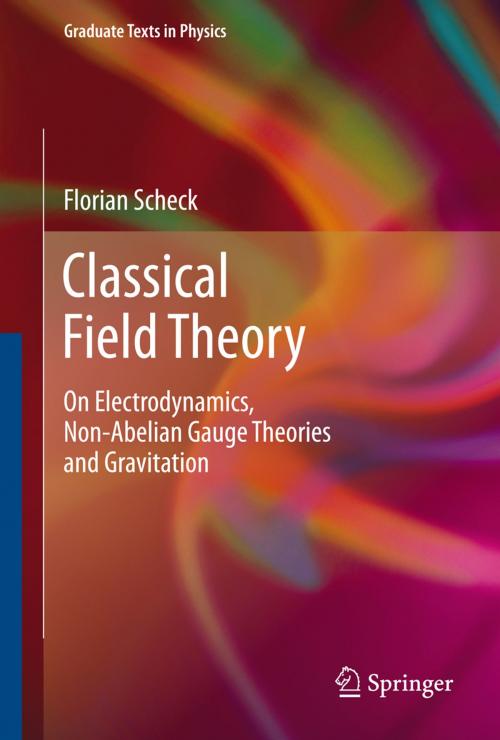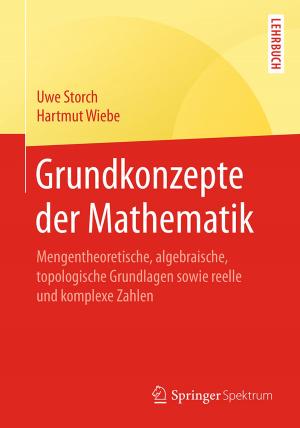Classical Field Theory
On Electrodynamics, Non-Abelian Gauge Theories and Gravitation
Nonfiction, Science & Nature, Science, Physics, Gravity, Mathematical Physics| Author: | Florian Scheck | ISBN: | 9783642279850 |
| Publisher: | Springer Berlin Heidelberg | Publication: | May 8, 2012 |
| Imprint: | Springer | Language: | English |
| Author: | Florian Scheck |
| ISBN: | 9783642279850 |
| Publisher: | Springer Berlin Heidelberg |
| Publication: | May 8, 2012 |
| Imprint: | Springer |
| Language: | English |
The book describes Maxwell's equations first in their integral, directly testable form, then moves on to their local formulation. The first two chapters cover all essential properties of Maxwell's equations, including their symmetries and their covariance in a modern notation. Chapter 3 is devoted to Maxwell theory as a classical field theory and to solutions of the wave equation. Chapter 4 deals with important applications of Maxwell theory. It includes topical subjects such as metamaterials with negative refraction index and solutions of Helmholtz' equation in paraxial approximation relevant for the description of laser beams.
Chapter 5 describes non-Abelian gauge theories from a classical, geometric point of view, in analogy to Maxwell theory as a prototype, and culminates in an application to the U(2) theory relevant for electroweak interactions. The last chapter 6 gives a concise summary of semi-Riemannian geometry as the framework for the classical field theory of gravitation. The chapter concludes with a discussion of the Schwarzschild solution of Einstein's equations and the classical tests of general relativity (perihelion precession of Mercury, and light deflection by the sun).
------
Textbook features: detailed figures, worked examples, problems and solutions, boxed inserts, highlighted special topics, highlighted important math etc., helpful summaries, appendix, index.
The book describes Maxwell's equations first in their integral, directly testable form, then moves on to their local formulation. The first two chapters cover all essential properties of Maxwell's equations, including their symmetries and their covariance in a modern notation. Chapter 3 is devoted to Maxwell theory as a classical field theory and to solutions of the wave equation. Chapter 4 deals with important applications of Maxwell theory. It includes topical subjects such as metamaterials with negative refraction index and solutions of Helmholtz' equation in paraxial approximation relevant for the description of laser beams.
Chapter 5 describes non-Abelian gauge theories from a classical, geometric point of view, in analogy to Maxwell theory as a prototype, and culminates in an application to the U(2) theory relevant for electroweak interactions. The last chapter 6 gives a concise summary of semi-Riemannian geometry as the framework for the classical field theory of gravitation. The chapter concludes with a discussion of the Schwarzschild solution of Einstein's equations and the classical tests of general relativity (perihelion precession of Mercury, and light deflection by the sun).
------
Textbook features: detailed figures, worked examples, problems and solutions, boxed inserts, highlighted special topics, highlighted important math etc., helpful summaries, appendix, index.















